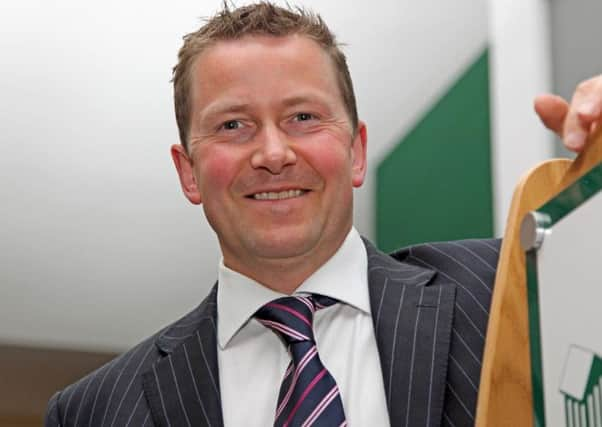Mark Casci: Jeff Fairburn was a good CEO let down by bad advice and poor PR


Under the stewardship of Jeff Fairburn, Persimmon Homes has been one of the country’s top performing companies. At its last set of results it posted a 13 per cent increase in profits to more than £500m. However he is now looking for new work.
What on earth went wrong?
Six years ago the company laid out a series of incentives to bolster its profits.


Advertisement
Hide AdAdvertisement
Hide AdIt was to award a bonus which would only be paid in the event of exceptional performance. It would be based on an awarding of shares, meaning that if the value of the company rose so would the value of the payment.
The firm’s directors supported this payment structure, as did its shareholders, and no cap was placed on the value of what it could run to.
When Persimmon set up its Long Term Incentive Plan, shares in the firm stood at around £4 but by the time the infamous bonuses were handed out last year the shares were trading at £24. As such Mr Fairburn found himself entitled to a very high sum indeed, reaching tens of millions of pounds.
Much of the disquiet came from the fact that the share price of Persimmon was bolstered by the incredibly low rate of interest and the government’s house buying scheme.
Advertisement
Hide AdAdvertisement
Hide AdMr Fairburn, a man known for shunning the limelight, was reluctant to discuss this in public. He said he would start a charity with his wife but when pressed on details was less than forthcoming.
Meanwhile the public, seeing only the vast sums involved, smelled blood and soon so did shareholders. His payment package narrowly made it through a recent AGM with a Brexit-esque thin majority, leaving behind a similarly bitter taste in the aftermath.
Given the sums involved one might think of him as the most fortunate man in British corporate life, but ultimately the situation became increasingly like a millstone around his neck.
Just when it looked as though it was going away a clip of Mr Fairburn did the rounds. The interview with the BBC’s Spencer Stokes showed him beginning to answer before being told not to by a nameless off-camera public relations official.
Advertisement
Hide AdAdvertisement
Hide AdIf ever there was a classic example of PR having the opposite effect of that which was intended it was this.
The issue of Mr Fairburn’s pay was once again back in the public arena with an absolute bang. It was viewed millions of times online and Persimmon, a profitable and high-performing company was once again in the news for all the wrong reasons.
Had he answered Spencer’s entirely reasonable question it would have had a fraction of the exposure it did. Instead, thanks to the disastrous mismanagement from the PR official at the time, it went vital with millions of views and made him look like he had something to hide.
Blackfriar is not doubting the eye-wateringly high value of the payments Mr Fairburn and his team were awarded. Nearly £500m was awarded to senior managerial staff in 2017 alone.
Advertisement
Hide AdAdvertisement
Hide AdHowever the blame for the debacle, which has cost a good chief executive his job, lies with those who produced his pay packet and with a PR ‘professional’ who put an old story front and centre again.
Be careful what you wish for it would seem,